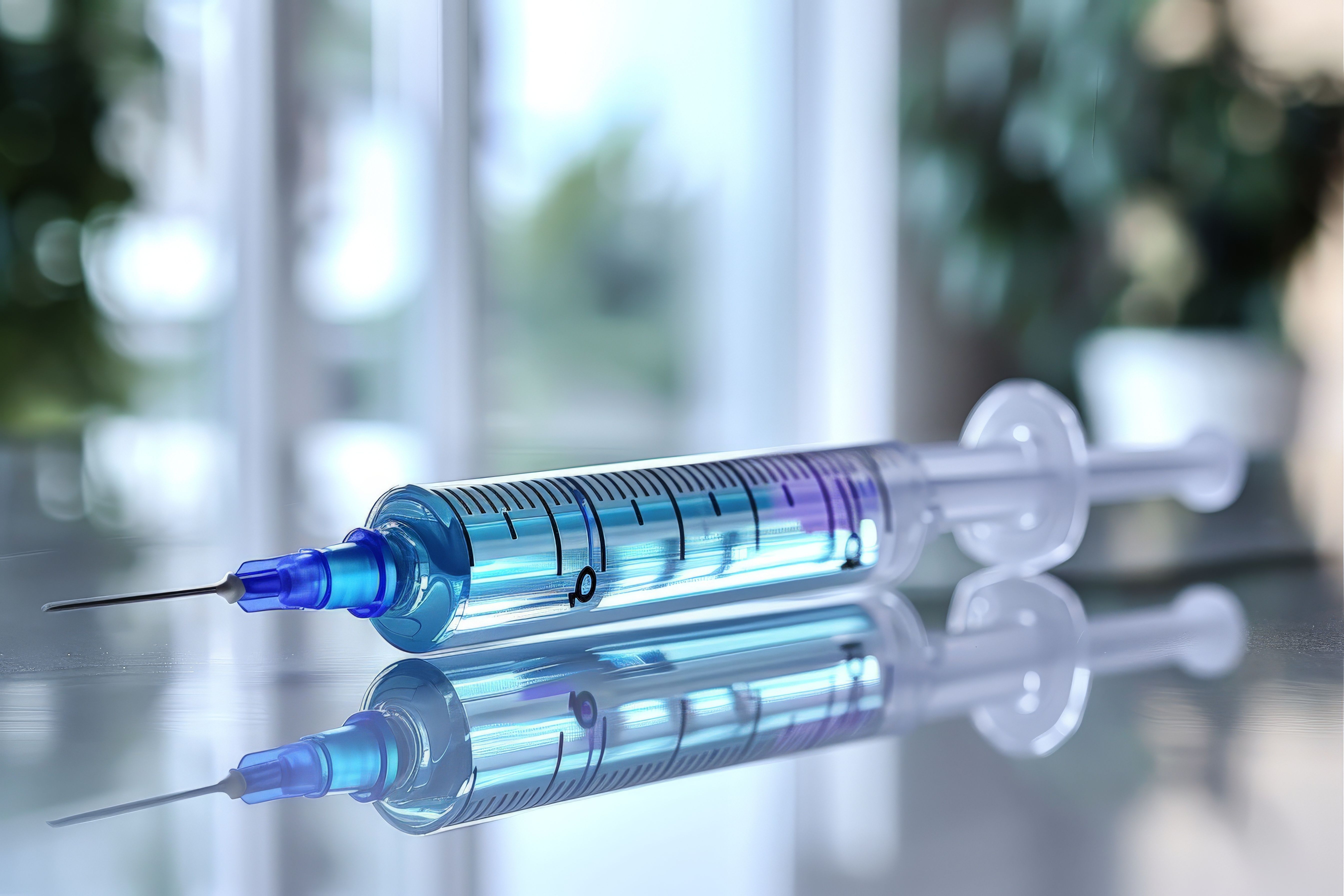- Bone Health
- Immunology
- Hematology
- Respiratory
- Dermatology
- Diabetes
- Gastroenterology
- Neurology
- Oncology
- Ophthalmology
- Rare Disease
- Rheumatology
Pharmacists Play a Crucial Role in Adalimumab Biosimilars for Patient Care
Adalimumab biosimilars differ from adalimumab in approved indications, concentration and dosage, and formulation.
This article was originally published on Pharmacy Times®. This version has been lightly edited.
Biosimilars play a crucial role in increasing access to lifesaving medications at potentially lower costs. According to the FDA, biosimilars are safe and effective, providing treatment for various illnesses, including chronic skin and bowel diseases, arthritis, kidney conditions, and cancer.1
Image credit: DachAI - stock.adobe.com

Adalimumab (Humira; AbbVie) is one of the leading products in the biologics market, often used to treat immune and inflammatory conditions. Unlike other biosimilars, adalimumab biosimilars have unique interchangeability and concentration considerations that impact pharmacy practices. Understanding the availability and considerations surrounding these products is essential—emphasizing the pharmacists’ role in educating patients on their use and workflow.2,3
As a biological medicine, adalimumab is made from proteins or other substances produced by the body. It is used to reduce inflammation by acting on the immune system, treating swelling caused by rheumatoid arthritis, plaque psoriasis, psoriatic arthritis, ankylosing spondylitis, Crohn disease, ulcerative colitis, and uveitis.3 The injectable treats these autoimmune conditions in adults and children by blocking the tumor necrosis factor (TNF) protein, which is a known cause of inflammation in the body.4
Adalimumab was first approved by the FDA in December 2002 and is available in several different doses, ranging from 10 mg to 80 mg.4,5 Since its initial approval, 10 adalimumab biosimilars have been approved in the US. However, adalimumab biosimilars differ from adalimumab in approved indications, concentration and dosage, and formulation.4
Approved Adalimumab Biosimilars
- Adalimumab-atto (Amjevita; Amgen) was the first FDA-approved adalimumab biosimilar in September 2016. Following its initial approval, adalimumab-atto became the first to launch in the US on January 31, 2023, indicated to treat adults with hidradenitis suppurativa (HS) and uveitis. It is available in a 40 mg and 80 mg prefilled autoinjector pen and in 10 mg, 20 mg, 40 mg, and 80 mg prefilled syringes.4
- Adalimumab-adbm (Cyltezo; Boehringer Ingelheim) received FDA approval in August 2017 and became the first interchangeable biosimilar with adalimumab. Adalimumab-adbm launched on July 1, 2023, to treat HV and uveitis. Availability includes a 40 mg prefilled pen and a 10 mg, 20 mg, and 40 mg syringe.4
- Adalimumab-adaz (Hyrimoz; Sandoz Pharmaceuticals) received FDA approval in October 2018 for the treatment of HS in adults. The injection pens are available at 40 mg for the low-concentration formulation and 40 mg and 80 mg for the high-concentration version. The prefilled syringes are available in 10 mg, 20 mg, and 40 mg (low concentration); 10 mg, 20 mg, 40 mg, and 80 mg (high concentration).4
- Adalimumab-bwwd (Hadlima; Samsung Bioepis) was approved by the FDA in July 2019 and launched in the US on July 1, 2023, for treatment of HS and uveitis. The autoinjector and syringe are available in a 40 mg dose—both low- and high-concentration.4
- Adalimumab-afzb (Abrilada; Pfizer) received FDA approval in November 2019, marked as the second interchangeable adalimumab biosimilar. It officially launched in November 2023 and is available in a 40 mg prefilled pen and a 10 mg, 20 mg, and 40 mg syringe.4
- Adalimumab-fkjp (Hulio; Viatris, Fujifilm Kyowa Kirin Biologics) was approved in July 2020 and launched in July 2023, also for the treatment of HS and uveitis with similar dosing indications as adalimumab-bwwd.4
- Adalimumab-aqvh (Yusimry; Coherus BioSciences) was launched in July 2023 but received FDA approval in December 2021. It is only available in a low-concentration and citrate-free 40 mg prefilled pen and syringe.4
- Adalimumab-aacf (Idacio; Fresenius Kabi) was the third to launch in July 2023, following its approval in December 2022; it is only available in a 40 mg prefilled pen and syringe.4
- Adalimumab-aaty (Yuflyma; Celltrion) was granted approval in May 2023 and was the last to launch in July 2023. It is available in 20 mg, 40 mg, and 80 mg prefilled syringes and 40 mg and 80 mg autoinjectors.4
- Adalimumab-ryvk (Simlandi; Alvotech, Teva Pharmaceuticals) is the tenth biosimilar to receive FDA approval in February 2024; it is also indicated for HS and uveitis and is available in a 40 mg injector.4
Pharmacists play a primary role in the landscape of adalimumab biosimilars, as many are indicated for similar treatment and are available in comparable doses, requiring a treatment expert to stay abreast of dosage and treatment requirements for each patient. Ensuring proper selection, dispensing, and monitoring of these biosimilars are crucial for patient outcomes. As the biosimilars landscape continues to evolve, pharmacists can educate health care providers and patients on the availability and benefits of adalimumab biosimilars while addressing concerns about their safety and efficacy.6
REFERENCES
1. Biosimilars. FDA. News release. Updated March 3, 2023. Accessed March 5, 2025. https://www.fda.gov/drugs/therapeutic-biologics-applications-bla/biosimilars
2. Preparing for the market entry of adalimumab biosimilars in the US in 2023: A primer for specialty pharmacists. News release. American Journal of Health-System Pharmacy; Published May 31, 2023. Accessed March 5, 2025. https://academic.oup.com/ajhp/article-abstract/80/18/1223/7187391?redirectedFrom=fulltext&login=false
3. About adalimumab. NHS. News release. Updated March 24, 2022. Accessed March 5, 2025. https://www.nhs.uk/medicines/adalimumab/about-adalimumab/
4. Is there a biosimilar for Humira? Yes, here are 10 Humira biosimilars to choose from. News release. GoodRx; Updated May 14, 2024. Accessed March 5, 2025. https://www.goodrx.com/humira/biosimilars
5. Humira FDA approval history. News release; Drugs.com. Updated August 25, 2022. Accessed March 5, 2025. https://www.drugs.com/history/humira.html
6. Biosimilar medicines uptake: the role of the clinical pharmacist. Exploratory Research in Clinical and Social Pharmacy. Published March 2021. Accessed March 5, 2025. https://www.sciencedirect.com/science/article/pii/S2667276621000081?via%3Dihub
Newsletter
Where clinical, regulatory, and economic perspectives converge—sign up for Center for Biosimilars® emails to get expert insights on emerging treatment paradigms, biosimilar policy, and real-world outcomes that shape patient care.
